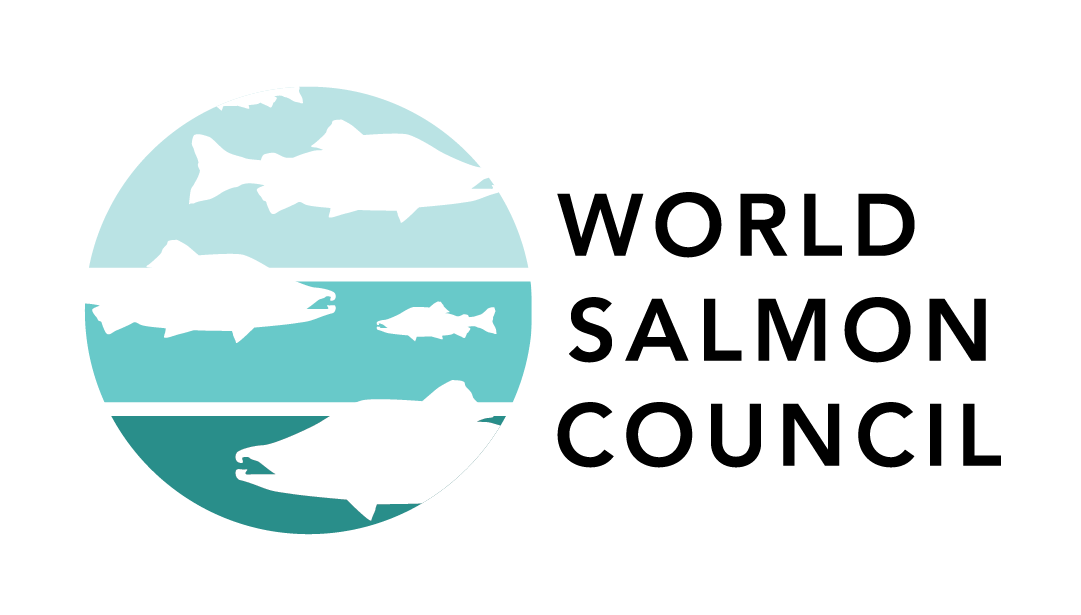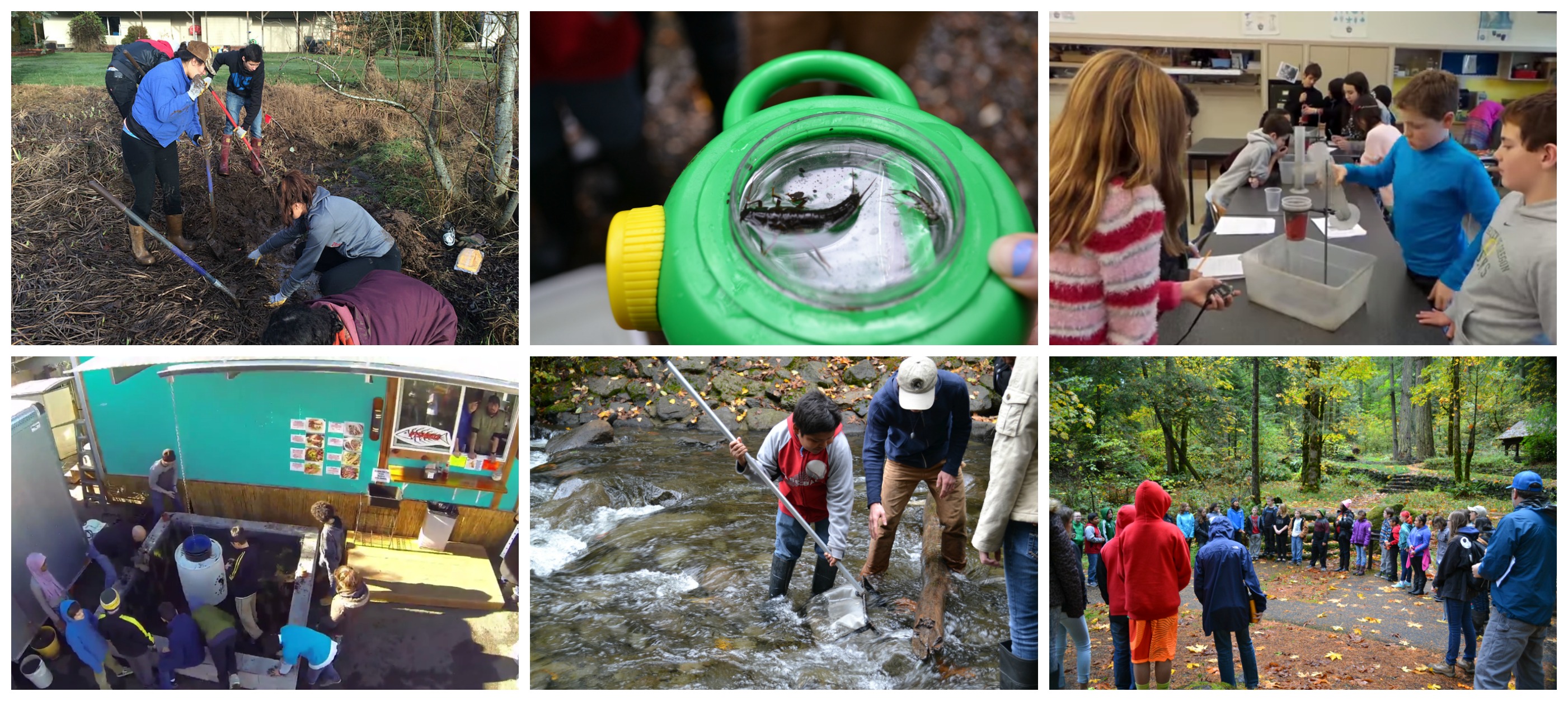Become a Volunteer Educator
Get involved in a unique, hands-on environmental education program! Register Today!Salmon Watch is an award-winning program serving students throughout the Pacific Northwest, providing in-class curriculum, field trips and service learning projects.
This fall, pandemic depending, WSC will host field trips on some of our region’s most iconic rivers in Mt. Hood National Forest, the Columbia River Gorge and Mid-Coast Range- weekdays during September, October and November.
Four volunteer educators teach on each field trip (avg. 7:1 instructor-student ratio), facilitating the following field learning stations: salmon biology, macroinvertebrate (aquatic insect) identification, water quality testing, and riparian (streambank) observation/nature awareness.
Schedules for field trips will be released later this summer.
Thank you for giving us the opportunity to get out of the classroom and into nature.
Teaching a field station for our middle and high school classes is fun and rewarding, and who doesn’t love spending a day on the river?
Brief station descriptions:
Salmon Biology: Usually taught by a fish biologist. A Salmon Watch field trip is the perfect opportunity for a discussion about the species of salmon that students observe on the field trip, the life cycle, anatomy, spawning behavior and topics such as the 4 Hs (Hydropower, Hatchery, Habitat, Harvest).
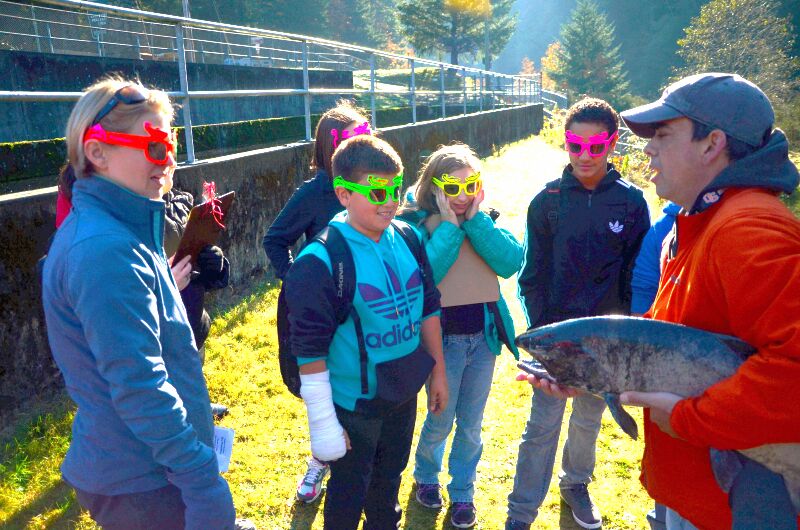
Macroinvertebrates: This activity reinforces what students have learned about water quality and the kinds of organisms that inhabit a stream with a particular water quality profile. At this station, students sample for aquatic insects in the stream and use that information to evaluate the health of the stream and suitability as salmon habitat. Data collected will be uploaded to OSU’s StreamWebs online database.
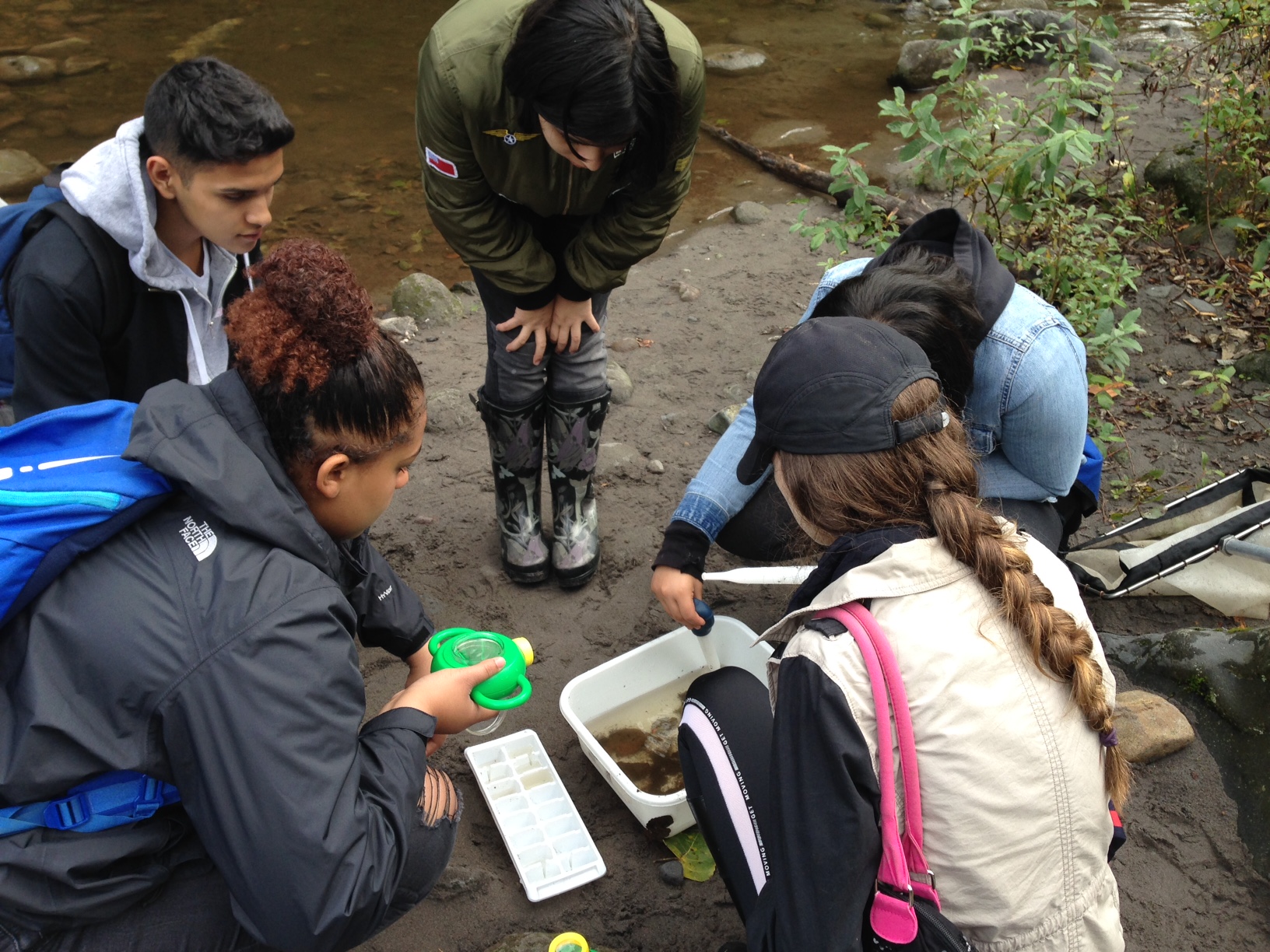
Water Quality: Monitoring provides basic information on the health of our rivers and streams. At this station, students will test temperature, pH, and dissolved oxygen to determine current water conditions. Data collected will be uploaded to OSU’s StreamWebs online database.
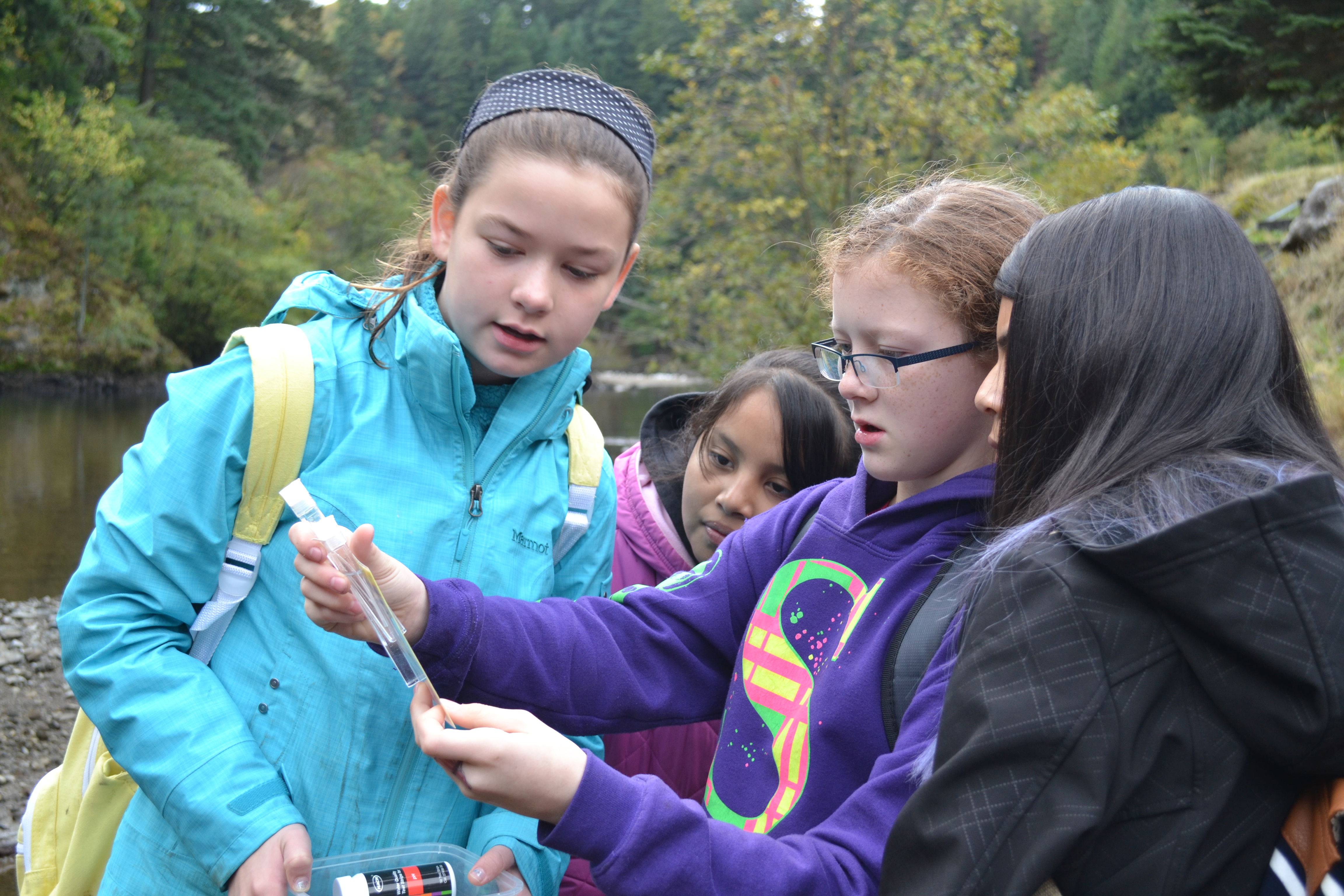
Riparian Zone: This station is an opportunity to learn about the interrelationship between salmon, humans and the watershed they share. Activities that help students gain a broader perspective include: discussion of human impacts, riparian metaphor game, plant ID scavenger hunt, stream mapping.
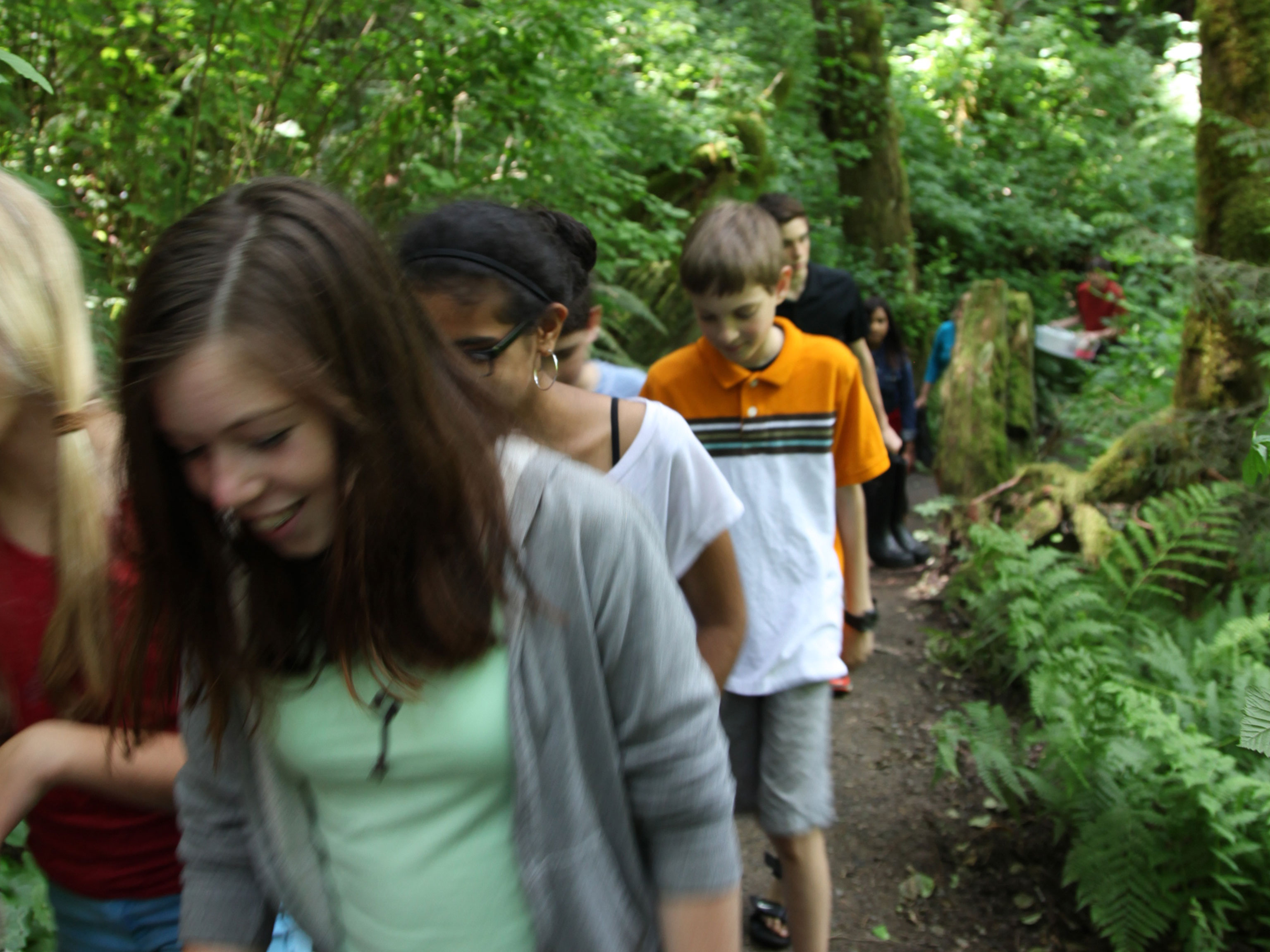
The field trips not only provide active, hands-on education, but also give kids a sense of place, an overview of Oregon’s natural history, increase scientific and environmental literacy, and offer a personal experience with spawning salmon that will stay with them (and you!).
No experience is necessary to become a Volunteer Educator. Free training provides you with everything you need to know about the field stations and feel comfortable teaching kids in nature.
There are also additional opportunities to provide support to teachers in their classrooms, and assist with service learning projects in the spring!
Thank you for your time and consideration, and for sharing your enthusiasm to help educate the next generation to better understand and relate to the natural world.
Volunteering for Salmon Watch gives me the chance to teach young students about something that I truly love.
Thank you for working so hard to provide kids with such an incredible hands-on learning experience.
